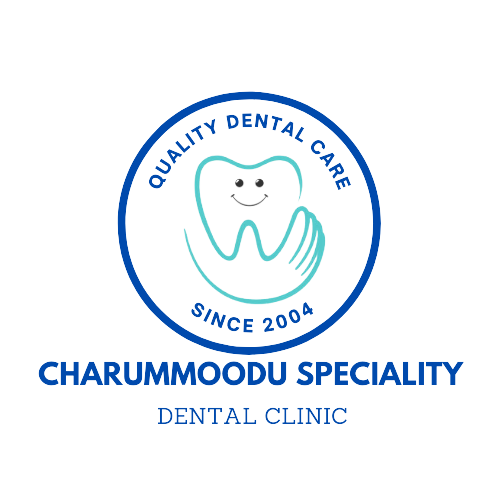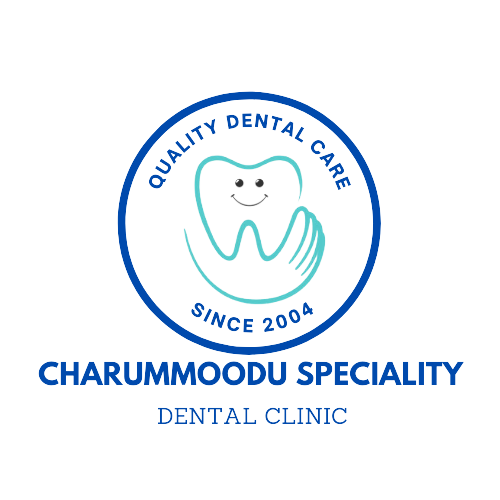
Root Canal Treatment at Charumood Dental Clinic
Ignoring root canal treatment can result in tooth loss and severe pain, so it’s crucial to tackle dental issues as soon as they arise.
Root canal therapy preserves your natural tooth, eliminating the need for extraction or implants. By seeking treatment early, you can protect your tooth’s health and prevent future discomfort or dental emergencies.
A human tooth is made up of three layers: Enamel, Dentin, and Pulp, much like the layers of an onion. The Enamel is the outer layer you can see and brush, while Dentin is beneath it, and the Pulp, at the center, contains the nerve and blood supply. If there are issues with the pulp, your dentist may recommend root canal treatment.
Choosing the right dental clinic for root canal treatment in India is vital. Charumood Dental Clinic is among the top clinics in the country, committed to effectively addressing all your dental concerns.
At Charumood Dental Clinic, we utilize advanced technology to potentially complete root canal treatment in a single visit. However, our priority is ensuring your comfort throughout the process rather than just speed.
Our root canal specialists will assess your situation and determine whether the treatment can be completed in one visit or if multiple appointments are necessary, typically not exceeding three sessions.
At Charumood Dental Clinic, we understand your concerns about dental visits and strive to make your treatment experience as smooth and anxiety-free as possible.
1. Persistent Toothache: Ongoing or worsening toothache could signal infection.
2. Sensitivity to Temperature: Lingering sensitivity to hot or cold may indicate nerve damage.
3. Swelling or Tenderness: Swelling in the gums around a tooth could be a sign of infection or abscess.
4. Tooth Discoloration: Darkening of a tooth may suggest decay or pulp damage.
5. Deep Decay or Damage: Severe decay or cracks often necessitate root canal therapy.
6. Pain When Chewing: Discomfort during chewing can indicate pulp inflammation or infection.
7. Previous Dental Work: Extensive dental procedures can weaken a tooth, increasing the likelihood of needing a root canal.
Step 2: The dentist prepares the cavity by removing infected material and accessing the pulp.
Step 3: The infected pulp is removed, and the canals are cleaned and disinfected.
Step 4: The cleaned canals are filled with gutta-percha to seal them.
Step 5: The tooth is restored with a filling, and a crown may be placed to complete the treatment.
At Charumood Dental Clinic, we offer expert root canal treatment at affordable prices, ensuring a painless experience.
Common signs include persistent toothache, sensitivity to hot or cold that lingers, swelling in the gums, tooth discoloration, pain when chewing, and a history of multiple dental procedures on the affected tooth.
Q2: How Can I Prepare for a Root Canal?
Before your appointment, it's helpful to inform your dentist about any medications you're taking and your dental history. You may also want to eat a light meal beforehand, as you might feel more comfortable during the procedure.
Q3: What Should I Expect After the Procedure?
After a root canal, you may experience some discomfort or sensitivity in the treated area, which is usually manageable with over-the-counter pain relievers. Follow your dentist's post-procedure care instructions for the best recovery.
Q4: Will I Need a Crown After My Root Canal?
In most cases, yes. A crown is often recommended after a root canal to provide strength and protection to the tooth, especially if a significant amount of the tooth structure was removed.
Q5: Are There Any Risks Associated with Root Canal Treatment?
While RCT is generally safe, risks can include infection, incomplete cleaning of the canals, or damage to surrounding tissues. However, these complications are rare with skilled practitioners.
Q6: How Long Does the Root Canal Procedure Take?
The procedure typically lasts between 60 to 90 minutes, though it may vary depending on the complexity of the case and the number of canals in the tooth.
Q7: Is It Possible to Get a Root Canal if I’m Pregnant?
Yes, root canal treatment can be performed during pregnancy, particularly if there is a risk of infection. It's essential to discuss your situation with your dentist and healthcare provider for proper care.


